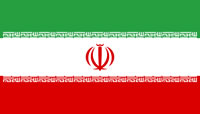The "Iran Deal" - Podcast
International & National Security Law Practice Group Podcast
 The "Iran Deal" as negotiated by the Obama Administration and approved by the UN raises controversies on many levels. One foundational question concerns whether a president's constitutional Article II power extends to an executive agreement that incurs foreign obligations and implicates international law. The congressional response in the Corker-Cardin review act demurred from challenging whether the nuclear deal was an end-run around treaty Senate ratification requirements by acknowledging the executive agreement classification. Now there are questions as to whether the final deal is sufficiently inconsistent with the anticipated agreement such that the Corker-Cardin bill is undermined. Does UN approval prior to congressional review moot Corker-Cardin? Additionally, as yet unquantified side agreements may have a bearing on congressional posture. Also, some states have sanctioned Iran separately. Since an executive agreement does not carry the federal pre-emptive power as would a treaty, may states continue to act independent of Corker-Cardin, UN, or administration commitments?
The "Iran Deal" as negotiated by the Obama Administration and approved by the UN raises controversies on many levels. One foundational question concerns whether a president's constitutional Article II power extends to an executive agreement that incurs foreign obligations and implicates international law. The congressional response in the Corker-Cardin review act demurred from challenging whether the nuclear deal was an end-run around treaty Senate ratification requirements by acknowledging the executive agreement classification. Now there are questions as to whether the final deal is sufficiently inconsistent with the anticipated agreement such that the Corker-Cardin bill is undermined. Does UN approval prior to congressional review moot Corker-Cardin? Additionally, as yet unquantified side agreements may have a bearing on congressional posture. Also, some states have sanctioned Iran separately. Since an executive agreement does not carry the federal pre-emptive power as would a treaty, may states continue to act independent of Corker-Cardin, UN, or administration commitments?
- Jamil N. Jaffer, Adjunct Professor of Law and Director, Homeland and National Security Law Program, George Mason University School of Law and former Chief Counsel and Senior Advisor, Senate Foreign Relations Committee
- David B. Rivkin, Jr., Partner, Baker & Hostetler LLP
- Prof. John C. Yoo, Emanuel S. Heller Professor of Law, University of California Berkeley School of Law






